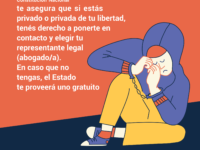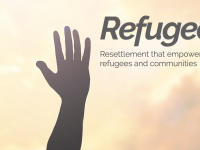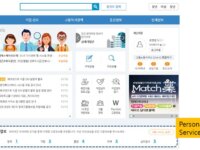The Ministry of Mines of Peru, alongside the IFC, BHP, various mining companies, and CISCO developed the Mining InfoCenter, a one-stop-shop social and digital innovation to provide mining-related information and capacity building to local leaders. The system will enable them to access information from the private and the public sector, build their capacities, and provide feedback to mining companies and the government, generating an informed dialogue that drives local development and contributes…
Innovation Tag: Data
"Defensores" is a platform designed to provide public defenders with a tool to register allegations of torture. This project was carried out in partnership with two key actors in the subject: The Ministry of Public Defense (MDP) and the National Mechanism for Prevention against Torture (MNP). Its implementation facilitates the effective and permanent monitoring of torture by public defenders and generates qualified information for different institutions and society in general. It's the first…
Tens of thousands of low-to-moderate-income families in Fort Collins live in energy inefficient housing that perpetuate health and economic disparities. The solution, “Epic Homes”, is an integrated, scalable public-private partnership model to “find, finance, and fix” energy inefficient rental properties and document health and well-being impacts. Epic Homes leverages private capital to offer simple and attractive financing for energy upgrades to achieve social and environmental…
Recruit Smarter is a multi-sector initiative of the Victorian Government and Melbourne University to develop inclusive recruitment practices and address unconscious bias in recruitment.
Internationally, Recruit Smarter is the first initiative of its kind, contributing findings to a growing body of research demonstrating the benefits of inclusive workplaces.
46 organisations across the public, private, non-government, and research sectors contributed to Recruit Smarter and its findings.
Nudge Türkiye undertook a project to increase the uptake of government subsidies by SMEs. Analysis showed our subsidies were used by a limited number of big companies, and government could reach the SMEs who need financial support the most. By interacting more closely with the firms, they clarified the pain points for the SMEs. Based on firms' feedback, organisers created a user-friendly website for explaining subsidies, and sent over 30,000 emails that used behavioural messages to nonapplicant…
Digital Lithuania Academy is an online learning platform that aims to guide the country’s public sector through the digital transformation. It seeks to immerse public servants in digital practices relevant to their work, and upgrade their professional profiles through a highly personalized learning pathway. By becoming increasingly tech-savvy, public servants have the chance to vastly increase their efficiency, find innovative ways of working, and deliver better public services to citizens.
The programme My First Salary addresses youth unemployment by providing a salary subsidy grant for the first employment of high school or university graduates bellow 30. It is implemented through a state-of-the-art tech platform that automates the application process, approval and match-making. It is a “zero paper” alternative to what used to be a “complex bureaucratic state support procedure”, combined with a transparent “recruitment procedure” – all in a streamlined and fully…
The program transitions chronically homeless patients from the Emergency Room into permanent supportive housing. Their partner, the Center For Housing & Health, has developed a network of 27 supportive housing providers representing ~4,000 scattered site one bedroom apartments dispersed throughout Chicago. The project has housed 59 patients to date, and has found very high mortality (34%) and high rates of uncontrolled chronic disease. Housing is health - it is as a dangerous health condition.
While tens of thousands of refugees are permanently resettled to host countries every year, governments lack the capacity to know which communities to place which refugees.
Annie™ MOORE, used by the resettlement agency HIAS, deploys advanced analytics to recommend communities that are most likely to maximize refugees’ odds of being employed.
Annie™ boosts employment chances by at least 30% over manual placement and ensures that the needs of refugees and community capacities are both…
It is difficult for job seekers to identify the employment information that applies to them. "The Work" is a service provided through 'Work-Net', Korea's public jobs portal network. The service uses AI technology to analyze job seeker data and to provide employment infortmation that is tailored to each user. The service offers recommended information to job seekers in six job-related categories. By using the service, the time it takes to search for the information is reduced drastically.



